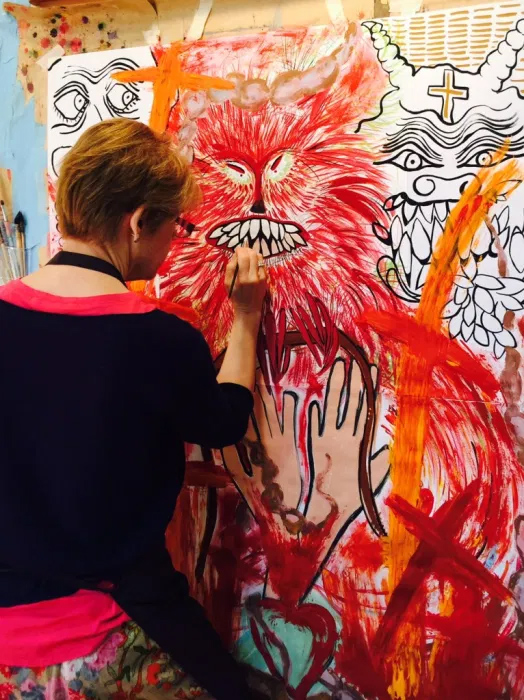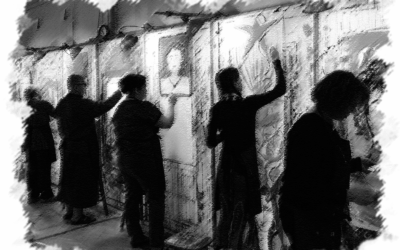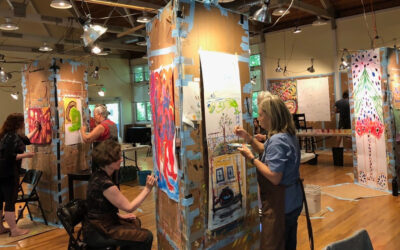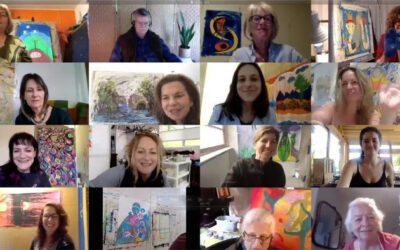
Intuition is subtle and always available, waiting patiently for you to turn to it.
When a spontaneous image arises, we often erect a red light or “wrong way” sign in front it. It is as though every new shape or color has to stand trial before a formal court prior to being allowed to appear in the painting. It is such a strenuous procedure that the images get tired and rebel, leaving us blank, blocked, without possibilities. The key to greater ease in your process painting practice — and perhaps also in your life! — is to turn toward what you are given, without attempting to bend it to your own preferences.
If You Don’t Listen to Your Intuition, It Will Stop Talking to You
If you find yourself struggling as you paint — evaluating every stroke, feeling tempted to paint over images that you don’t like, ask yourself: In life, do I change the faces of people I don’t like? Is it for me to decide what their expressions should be? Do I think I am the boss when I create? If you don’t respect what has been spontaneously painted, you will lose all joy in the doing. To create is to respond to what arises, not to manipulate it. You could add some color, a small detail, another form to carry more feeling, but to cover up an image is to stop the river. It will feel good for only a couple of seconds before it leaves you dry and empty.
Your intuition is like a sensitive friend. If you question it, judge it, it gets hurt and becomes silent. When you paint for process, you don’t decide what is and is not acceptable. The gift of spontaneous expression has been given to transcend that choice, to open you to what you do not know, cannot predict or expect.
It seems so difficult to give up ambitions in painting, whether they are aesthetic, psychological, or spiritual. Expectations are strong and demanding, while intuition is subtle and always available, waiting patiently for you to turn to it. Oblivious to your prejudices, it guides you toward yourself and never compromises.
Learn More
This article is adapted from the book Life, Paint and Passion: Reclaiming the Magic of Spontaneous Expression, co-authored by Stewart Cubley.
Hear more about this topic and many more on Stewart’s monthly Podcast series. If you liked this article, you might want to begin with Episode 23: Listening Has Consequences.
To find out about upcoming workshops and retreats, see our Programs.



